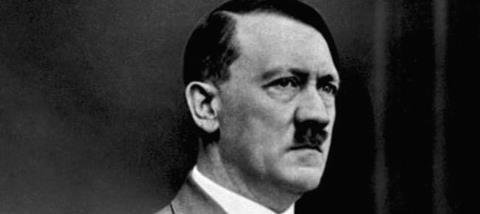
Whatever one thinks about the controversy over Syrian refugees and ISIS, Whoopi Goldberg’s recent comments on national television trying to convince us that Christian refugees are just as scary as Muslims disseminates an idea that circulates widely on the internet, i.e., that Hitler was a Christian.
She stated, 'There have been a lot of horrifying—there have been a lot of monster Christians. Hitler was a Christian.' When her interlocutors balked at this, she then defended her position by saying, 'He didn’t like the Catholics, remember? So he thought of himself as a Christian person.' Goldberg apparently doesn’t understand that Catholicism is a branch of Christianity, or that Hitler—despite his opposition to Catholicism—was officially a Catholic.
If Goldberg were the only one confused about Hitler’s relationship to Christianity, we could ignore it. However, she was expressing a view that circulates widely, especially in atheist circles. Leading atheist intellectuals, such as Richard Dawkins, have insisted that Hitler was a sincere Christian. Their evidence? He said so himself in some of his speeches in the 1920s. In one famous quote circulating on dozens of atheist websites, Hitler stated (on April 12, 1922), 'My Christian feeling directs me to my Lord and Savior as a fighter...As a Christian I do not have the duty to allow the wool to be pulled over my eyes, but I have the duty to be a fighter for the truth and for what is right...As a Christian I also have a duty toward my own people (Volk).'
Hitler purposely lied about his religious convictions
Strangely, those trumpeting this quotation as proof that Hitler was indeed a Christian display the attitude: Hitler said it, I believe it, and that settles it. Never does it seem to cross their minds that Hitler might be - gasp -lying for political advantage. They are as convinced of Hitler’s veracity as the naïve British Prime Minister Chamberlain was when he arrived back from the Munich Conference waving a sheet of paper with Hitler’s signature on it and proclaiming: 'peace for our time.' In short, they gullibly swallow Hitler’s propaganda (and they blithely ignore a plethora of Hitler’s anti-Christian remarks).
Fortunately, my forthcoming book, Hitler’s Religion: The Twisted Beliefs That Drove the Third Reich (2016) will definitively lay to rest the canard that Hitler was a Christian. By examining in painstaking detail Hitler’s writings, speeches, private conversations, and the testimony of his colleagues, I demonstrate that Hitler’s worldview was far more anti-Christian than Christian. For one thing, there is powerful evidence that Hitler purposely lied about his religious convictions. For instance, when Hitler was in Landsberg Prison, his right-hand man, Rudolf Hess, wrote in a confidential letter that Hitler told him that, as painful as it was for him, 'for reasons of political expediency he [Hitler] had to play the hypocrite toward his church.'
Hitler clearly did not believe in Jesus’s resurrection, claiming that Jesus’s life ended in failure, since he was martyred by the Jews.
Secondly, Hitler often made anti-Christian remarks to his private entourage, and even occasionally slipped in some anti-Christian comments in his public writings and speeches. Hitler not only abhorred the Old Testament of the Christian Bible as Jewish, but he rejected most of the New Testament, especially the epistles of Paul, whom he considered a sneaky Jewish rabbi who smuggled Jewish ideas into Christianity. To be sure, Hitler did esteem Jesus highly, because he thought Jesus was an Aryan antisemitic fighter fathered by a Roman solider (thus not the Son of God born of a virgin). His favorite Bible story, as he told it, was when Jesus wielded a whip to drive those money-grubbing Jews out of the temple. Hitler clearly did not believe in Jesus’s resurrection, claiming that Jesus’s life ended in failure, since he was martyred by the Jews.
Almost from the beginning of his political career to the end, Hitler portrayed Christianity as a tool of the Jews that supplanted the Greco-Roman culture that he loved. He continually complained that Christianity was still imbued with a Jewish spirit. He remonstrated against Christian morality, especially its exaltation of humility and compassion for the sick and weak.
On the other hand, Hitler held in the highest esteem anti-Christian philosophers, such as Schopenhauer and Nietzsche. Hitler even donated his own personal funds to the Nietzsche Archive to promote the ideas of this God-is-dead philosopher. Hitler also expressed admiration for the religious views of Frederick the Great, who was a patron of such Enlightenment luminaries as the deist Voltaire and the atheist La Mettrie.
In sum, Hitler remained officially a Catholic throughout his life, and he esteemed Jesus highly. However, he denied that Jesus was God and ridiculed Christian doctrines, rejected the Christian holy book, and hated Christian moral standards. In one diatribe in 1941 he stated, 'Christianity is the most insane thing that a human brain in its delusion has ever brought forth, a mockery of everything divine.'
Richard Weikart is professor of history at California State University, Stanislaus, and author of Hitler’s Religion: The Twisted Beliefs That Drove the Third Reich (forthcoming in 2016).
This article was first published on Townhall.com


























